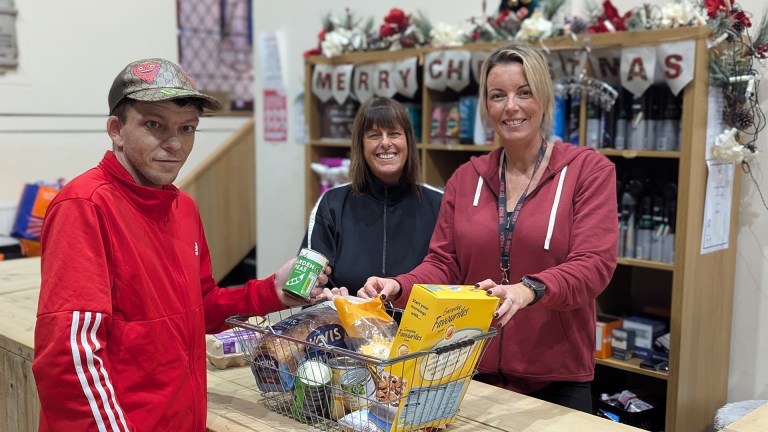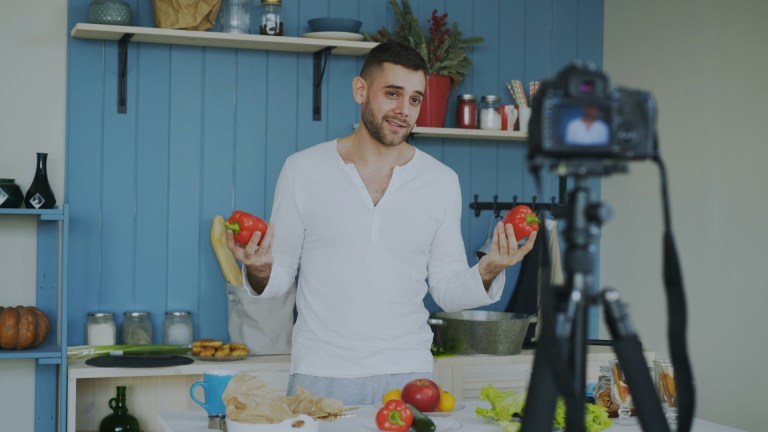Sally Griffiths is a young farmer in Powys, Wales, who has had to find work away from her family farm due to financial pressures. Of her three siblings, only one works on the farm, in part because it does not make enough money to fund all of them.
“We’re all going to do some different things as I don’t think it’s fair to put pressure on the family. Finances are such an awkward topic in farming, so I think it’s nice when we’re all young to do what we want for our careers.
“People see farmers and think that they’re rich because they have land, but in reality, unless you sell that land you don’t have access to that money.”
For those without a farm to inherit, the barriers to entering the industry are even greater as even a relatively small plot of land can cost hundreds of thousands of pounds to buy. There’s also a growing trend towards farmland being bought and not used to produce food; in 2023 non-farmers bought more than half the farms and estates sold.
These challenges are already having an impact on the food we eat as prices are rising, less British food is being produced and cheaper imports are becoming more prevalent. “It’s largely like what happened to the coal and steel industry in the 1980s,” explains Liz Webster. “We will end up with a small number of very high-end British food producers with very high standards.”
But for those who can’t afford such luxuries, Webster says the price and quality of food is only set to get worse. “Everybody else will be forced to eat processed, imported, expensive food. At the moment New Zealand is sending lamb over here for as little as £5.55 a kilo, while the local [British] stuff is more than double that. They will only continue to do this until British farmers are run down, then of course they’ll hike up the prices.”
Seeing poor-quality imports undercut British food is a lose-lose situation for farmers and consumers who want high-welfare produce, but the government has shown reluctance to rectify the situation. New trade deals with New Zealand and Australia have removed limits on the amount of lamb and beef which can be imported into Britain, without achieving the same terms for British exports.
Big Issue is demanding an end to poverty this general election. Will you sign our open letter to party leaders?
Elsewhere, the government has refused to recognise food security as a public good, a move which has been criticised by parliament’s Environmental Audit Committee. Campaigners say a focus on food is more important than ever, as prices rose by 25% between 2022 and 2024 and geopolitical instability means disruption to the food chain is becoming more likely. Without government action to lower prices, Britain could quickly fall into a food crisis.
Andrew Forsey, national director of food poverty charity Feeding Britain, says the poorest people are already suffering. “In the most deprived areas in England, one in 11 adults ran out of food and couldn’t afford to buy any more last winter. They have to keep on top of their housing payments, otherwise they can lose a roof over their heads. They have to keep on top of their utility bills, otherwise they have no heat or lights.
But they don’t get into trouble if they cut back on food. Instead, they have to suffer from hunger.” According to Forsey, the only way to eliminate such poverty and ensure long-term food security for all is to see a cooperative effort to bring affordable food to local communities.
“You would be hard pressed to find a social supermarket, pantry or food club that doesn’t have a relationship with retailers in the local area to help redistribute some perfectly edible produce that is at risk of going to waste,” he continues. “Most relationships are extending beyond retailers to wholesalers, farmers, market traders and others too.”
With food producers and consumers both facing huge challenges, perhaps cooperation is the best way forward for food security.
This article is taken from The Big Issue magazine, which exists to give homeless, long-term unemployed and marginalised people the opportunity to earn an income.To support our work buy a copy! If you cannot reach your local vendor, you can still click HERE to subscribe to The Big Issue today or give a gift subscription to a friend or family member. You can also purchase one-off issues from The Big Issue Shop or The Big Issue app, available now from the App Store or Google Play.









